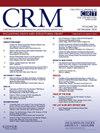Performance of balloon-expandable transcatheter bioprostheses in inoperable patients with pure aortic regurgitation of a native valve: The BE-PANTHEON international project
IF 1.6
Q3 CARDIAC & CARDIOVASCULAR SYSTEMS
引用次数: 0
Abstract
Background
The off-label utilization of transcatheter heart valve (THV) devices for the treatment of inoperable or high-surgical risk patients with pure native aortic valve regurgitation (NAVR) has demonstrated suboptimal outcomes, both with self- and balloon-expandable (BE) devices. The aim of this study is to compare the use of different BE scaffolds in treating pure NAVR.
Methods
Consecutive patients with pure severe NAVR who were deemed to be at high-risk and were treated with last-generation BE-THVs among seventeen Centers in Europe and US. Technical and device success rates were the primary objectives.
Results
Between February 2018 and July 2023, among 144 patients, 41 (28 %) received a MyVal device and 103 (72 %) were treated with a Sapien THV. Patients treated with a MyVal THV had an extra-large annulus more frequently compared to the Sapien group (49%vs.20 %, p < 0.001).
Technical and device success rates were 90 % and 81 %, respectively, p > 0.1. The rate of THV migration/embolization (MyVal 4.9%vs. Sapien 11 %, p = 0.4) and second valve needed (4.9%vs.7.8 %, p = 0.7) were numerically lower in the MyVal group, whereas the rate of at least moderate paravalvular leak (15%vs.7.8 %, p = 0.2) and permanent pacemaker implantation (25%vs.18 %, p = 0.16) were numerically higher in the Myval group.
Conclusions
Off-label use of BE devices for pure NAVR represents a potential alternative in high-risk patients in the absence of dedicated devices. However, BE in NAVR is associated with suboptimal outcomes. The availability of larger THV sizes may introduce transcatheter aortic valve replacement as an effective treatment for patients traditionally deemed unsuitable.
Non-standard abbreviations and acronyms
AR = aortic regurgitation, BE = balloon-expandable, NAVR = native aortic valve regurgitation, PM = pacemaker, TAVR = transcatheter aortic valve replacement, THV = transcatheter heart valve, TVEM = transcatheter valve embolization and migration, VARC-3 = Valve Academic Research Consortium 3.

球囊扩张型经导管生物瓣膜在无法手术的纯主动脉瓣反流患者中的表现:BE-PANTHEON国际项目。
背景:标示外使用经导管心脏瓣膜(THV)装置治疗无法手术或手术风险高的纯原发性主动脉瓣反流(NAVR)患者,无论是自体瓣膜装置还是球囊扩张(BE)装置,均显示出不理想的疗效。本研究旨在比较使用不同的 BE 支架治疗纯性 NAVR 的效果:方法:在欧洲和美国的 17 个中心连续收治被视为高风险的纯重度 NAVR 患者,并使用上一代 BE-THV 进行治疗。技术和设备成功率是主要目标:2018年2月至2023年7月期间,在144名患者中,41人(28%)接受了MyVal装置治疗,103人(72%)接受了Sapien THV治疗。与 Sapien 组相比,接受 MyVal THV 治疗的患者出现超大瓣环的频率更高(49%vs.20%,P 0.1。MyVal组的THV移位/栓塞率(MyVal 4.9%vs. Sapien 11%,p = 0.4)和需要二次瓣膜的比例(4.9%vs.7.8%,p = 0.7)在数字上较低,而MyVal组的至少中度瓣膜旁漏率(15%vs.7.8%,p = 0.2)和永久起搏器植入率(25%vs.18%,p = 0.16)在数字上较高:结论:标示外使用 BE 设备进行纯 NAVR 是高风险患者在没有专用设备的情况下的一种潜在选择。然而,BE 在 NAVR 中的应用与次优结果相关。更大尺寸 THV 的出现可能会使经导管主动脉瓣置换术成为传统上被认为不适合患者的一种有效治疗方法:AR=主动脉瓣反流,BE=球囊扩张,NAVR=原发性主动脉瓣反流,PM=起搏器,TAVR=经导管主动脉瓣置换术,THV=经导管心脏瓣膜,TVEM=经导管瓣膜栓塞和移位,VARC-3=瓣膜学术研究联盟 3。
本文章由计算机程序翻译,如有差异,请以英文原文为准。
求助全文
约1分钟内获得全文
求助全文
来源期刊

Cardiovascular Revascularization Medicine
CARDIAC & CARDIOVASCULAR SYSTEMS-
CiteScore
3.30
自引率
5.90%
发文量
687
审稿时长
36 days
期刊介绍:
Cardiovascular Revascularization Medicine (CRM) is an international and multidisciplinary journal that publishes original laboratory and clinical investigations related to revascularization therapies in cardiovascular medicine. Cardiovascular Revascularization Medicine publishes articles related to preclinical work and molecular interventions, including angiogenesis, cell therapy, pharmacological interventions, restenosis management, and prevention, including experiments conducted in human subjects, in laboratory animals, and in vitro. Specific areas of interest include percutaneous angioplasty in coronary and peripheral arteries, intervention in structural heart disease, cardiovascular surgery, etc.
 求助内容:
求助内容: 应助结果提醒方式:
应助结果提醒方式:


